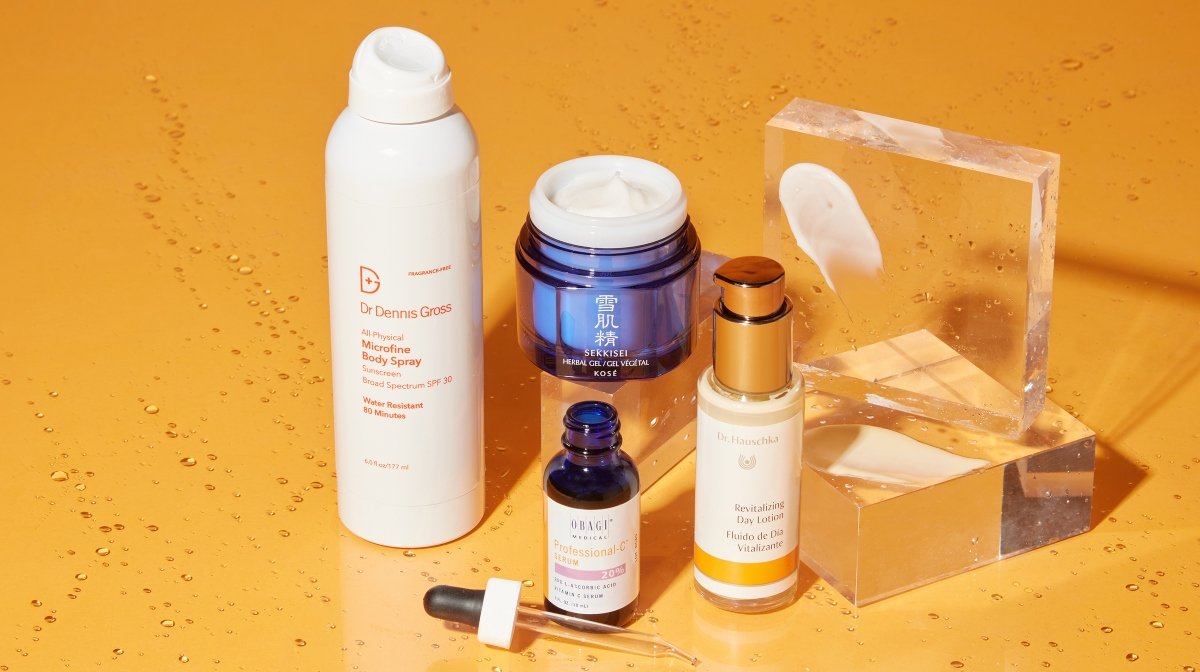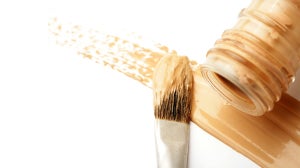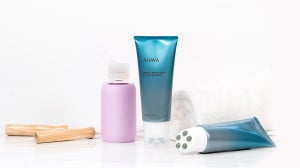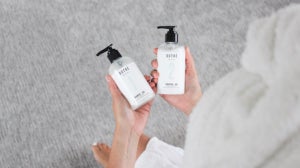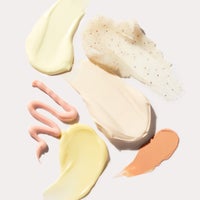
The secret to healthy, plump, glowy skin is all about skin hydration. When the skin cells lack moisture, the skin can look dry, and common signs of aging, like fine lines and wrinkles, become more noticeable. Not only does well-hydrated skin feel good, but it also looks better—the skin’s overall tone and texture improve when hydrated adequately. But achieving that ideal level of skin hydration consists of more than just using moisturizer here and there. It takes constant dedication to understand your skin and skin type and what needs to be soft, smooth, and hydrated.
Table of Contents:
- What is the difference between moisturizing and hydrating?
- Building a Hydration Routine
- The Power of Hydrating Ingredients
- Daily Hydration Habits
- Lifestyle and Dietary Factors
- Advanced Hydration Techniques
- The Bottom Line
What is the difference between moisturizing and hydrating?
While the two terms are often used interchangeably, those in the know understand that they actually describe separate functions. Hydration draws in moisture and moisturization locks it in. Hydration happens when moisture is absorbed from the air and infused into your cells, whereas moisturization is about trapping and sealing in that moisture.
If your skin has a dull look and its fine lines are becoming more noticeable, that means you're dehydrated. If it's consistently dry or flaky, that's a sign you might be delivering the moisture, but it's not staying in. To attain the smoothest and most supple skin, you need to be both moisturizing and hydrating it.
Building a Hydration Routine
Cleansing for Hydration
The first step in skin hydration is to create a clean slate with a gentle cleanser. Washing the face with cleansers that strip away too much oil can leave the skin feeling dry and tight. While it’s important for your cleanser to effectively remove every last trace of dirt, oil, and makeup, there’s no need to leave the skin feeling completely zapped of its natural oils, which can even affect its ability to create oil in the future.
Gentle cleansers with hydrating ingredients and plant-based extracts can remove the day while protecting the skin’s barrier. Over washing the skin can be detrimental for drier skin types, so you may want to skip a morning cleanse if you feel it’s necessary. Instead, splash the face with some water to help refresh the skin.
Choosing the Right Moisturizer
Different moisturizers have different benefits for different skin types, and to find the one that suits you best, you’ll need to consider your skin type. There are also formulations, like serums, creams, and lotions. Of the three, serums are thin and lighter yet still deliver active ingredients to the skin. Moisturizers are thicker and lock in hydration by creating a barrier on the skin, and lotions fall somewhere between the two. The drier the skin, the thicker the cream you’ll want to use, and the oilier the skin, the lighter the formulation.
Related Article: Understanding Your Skin Type: The Key to Healthy, Glowing Skin
The Power of Hydrating Ingredients
Nothing does the job quite like a good hydrator for hydrating the skin. But with so many different types of moisturizing ingredients out there, how do you know which one is best? These are the most commonly used hydrating ingredients that work wonders on the skin.
- Glycerin: This moisturizing agent draws water into the skin (a humectant) and is one of the most commonly used hydrators in topical skincare products today.
- Hyaluronic acid: Buzzed-about hyaluronic acid (HA) holds up to 1,00 times its weight in water, making it a go-to for seriously parched skin. HA is also naturally produced within the body, so it likely doesn’t cause irritations or reactions or clog the pores, making it good for sensitive skin types.
- Ceramides: Naturally occurring ceramides create a protective layer on the skin, helping to keep moisture in and damagers out.
- Fatty alcohols: Although fatty alcohols may not sound like they do much to hydrate the skin, they moisturize and help prevent water loss in the skin.
- Petrolatum: For more serious moisture, give petrolatum a try. It works to create a barrier between the skin and the product to reduce how much water the skin loses. While petrolatum is helpful for dry skin, it can cause congestion and breakouts in oily, acne-prone and combination skin types.
- Squalene: Another hydrating ingredient that’s also naturally found within the skin, squalene absorbs quickly into the skin, leaving it feeling light and refreshed.
- Lactic acid: You may not think of an acid as having hydrating abilities since most act as exfoliators, but lactic acid also doubles as a humectant. While lactic acid shouldn’t be your only source of hydration (it’s best to pair it with other hydrating ingredients), it can help increase moisture within the skin.
- Panthenol: Like other moisturizing ingredients, panthenol helps to penetrate the skin and flood the skin cells with moisture. It also helps to prevent water loss.
Daily Hydration Habits
To keep the skin hydrated at optimal levels, it's crucial to practice daily hydration habits that consist of morning and nighttime hydration.
Morning Hydration Routine
Hydrating the skin, especially in the morning, is extremely important for skin hydration and overall health. Applying a skin-appropriate moisturizer to the skin in the morning will help to prep and rehydrate It and prevent water loss throughout the day. Plus, skin hydration in the morning helps to repair the skin barrier to protect it from damaging elements it is exposed to throughout the day. Some daytime moisturizers also gave SPF in the formula to help further protect the skin (although we always recommend adding another layer of sunscreen on top).
Moisturizer should always be one of the last steps in your morning skincare routine. After cleansing and toning the skin so it's clean and ready to receive active ingredients, apply your serums and moisturizer. Finish it off with a layer of sunscreen to further protect the skin.
Nighttime Hydration Routine
The skin goes into repair mode at night, making it the optimal time to reap ideal skin hydration. Nighttime moisturizers tend to be thicker than their daytime counterparts and don't contain SPF either. Instead, they usually have anti-aging and skin-renewing ingredients like retinol, exfoliating acids, and even heavier moisturizing ingredients.
Before applying moisturizer or any other type of hydrating product to your skin before bed, it’s essential to cleanse it well to remove all traces of the day. Then, with clean skin, it’s time to layer on all your treatment products—think retinol, peptides and such—and swipe on eye cream. Apply your nighttime skincare products in order of lightest to heaviest and lock it all in with a rich nighttime moisturizing cream.
Lifestyle and Dietary Factors
Surprisingly, how you treat your body directly reflects skin hydration, and there's a lot you can do to hydrate your skin from the inside out.
For starters, drinking plenty of water is rule number one. Since the body is primarily made of water, fueling it with enough water helps keep all systems going. Ample amounts of water also plump skin cells, preventing water loss and skin dryness. Just as important as drinking enough water is eating water-rich foods, like watermelon, cucumber, celery, and spinach, as well as those rich in good fats, vitamins, and proteins that help the skin maintain its protection barrier and keep moisture from escaping. Other foods that contain collagen, like eggs, garlic and even bone broth, can have a hydrating and plumping effect on the skin, as can omega-3 fatty acids, like salmon. These foods also improve the skin's barrier function, acting like a seal to keep moisture within and irritants out.
How you care for and treat your body can also impact skin hydration. Lifestyle choices detrimental to moisturize levels include smoking, stress and drinking too much alcohol. Instead of choosing bad habits, try to implement healthy ones into your daily routine, including getting enough sleep and exercising regularly. Together, the right combination of lifestyle and dietary factors can have a profound impact on your skin hydration levels.
Advanced Hydration Techniques
Hydration Boosters
While moisturizers and serums have their place in any skin hydration routine, sometimes more hydration is needed, and that's where more advanced techniques come into play. Tried-and-true hydrating products like facial oils, sheet masks and even hydrating mists can create optimal skin hydration, primarily when used with regular moisturizers. While each advanced hydration product works uniquely—hydrating mists contain ingredients like spring water, rose water, or hyaluronic acid to give the skin an instant refreshed, dewy feel; facial oils protect the skin's barrier and nourish it to prevent moisture from seeping out of the skin; and sheet masks contain higher concentrations of hydrating ingredients that sit on the skin for more extended periods to penetrate it and nourish it. No matter which hydration booster you gravitate towards, use these products in addition to your morning and nighttime moisturizers, not in place of them.
Professional Treatments and At-Home Devices
For even more hydration, consider a professional treatment that can help flood the skin with deep moisture to revive dry, dull complexions. The key to finding the proper treatment for you is to consult a professional, like an aesthetician or a dermatologist, who can assess your skin and recommend the appropriate treatment. Facials with hydrating masks are always a classic staple, as are HydraFacial's, oxygenating treatments, and microdermabrasion infusion treatments. However, if you opt for a professional treatment, it's still important to follow up the results with a well-rounded at-home skincare routine consisting of the right hydrating ingredients and products and even at-home skincare devices that will help keep skin hydration at optimal levels.
The Bottom Line
Keeping the skin well hydrated is the key to achieving glowing, plump skin that looks youthful and healthy. While it's easy to lose sight of how important hydrating the skin is, it's not a step in your skincare routine that you'll want to skimp on. Sometimes, the time of year or what your skin is experiencing may necessitate the use of a heavier moisturizer or even professional treatments. Still, if you follow the basic skincare steps and treat your skin and body ideally, your skin should be relatively hydrated and smooth.Shop SkinStore for hydrating skincare to keep your skin healthy and radiant.

